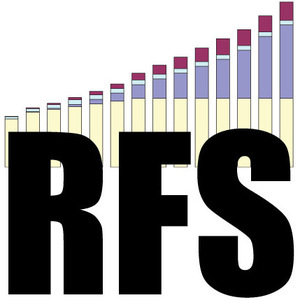NBB asks US EPA to raise 2020 RFS and 2021 biodiesel volumes

July 31, 2019
BY The National Biodiesel Board
National Biodiesel Board executives criticized the U.S. EPA’s proposal for the 2020 Renewable Fuel Standard and the 2021 biomass-based diesel volumes in testimony at a field hearing hosted by EPA in Michigan, emphasizing that the agency is sending a negative signal to the biodiesel industry by proposing flat volumes and then rolling them back through retroactive small refinery exemptions.
“EPA has selected volumes for the biomass-based diesel market that are simply too low,” said Kent Engelbrecht, NBB chairman and biodiesel trade manager at Archer Daniels Midland Co. “Year after year, the U.S. biodiesel and renewable diesel industry continues to demonstrate sustainable growth. We can achieve still higher volumes over the coming years. When EPA sends the wrong signals for this program, biodiesel producers see significant investments put at risk. Flatlined volumes block achievable growth and undermine the goals of the RFS.”
Advertisement
Advertisement
Kurt Kovarik, NBB’s vice president of federal affairs, emphasized, “Without properly accounting for small refinery exemptions, EPA is failing its duty to ensure that the annual required volume obligations are met. What that means for the current rule is that the agency must find a way to reconcile small refinery exemptions. And there are multiple options.”
EPA’s calculation of the 2020 annual percentage standards uses “zero” as the number of gallons of diesel and gasoline produced by exempt small refineries. For 2015, 2016 and 2017, EPA exempted nearly 28 billion gallons of gasoline and diesel produced by small refineries, without accounting for them in the RFS program. Those exemptions reduced demand for biodiesel and renewable diesel by hundreds of millions of gallons. According to University of Illinois Professor Scott Irwin, the demand destruction for biodiesel and renewable diesel could reach 2.45 billion gallons over the next few years causing a $7.7 billion economic loss for the biodiesel industry.
Advertisement
Advertisement
“As it finalizes the current rule, EPA has several options to ensure that the volumes it sets are reliable and will be met,” said Doug Whitehead, NBB’s chief operating officer. “First and foremost, the agency must only grant exemptions to small refineries that actually qualify. Second, EPA must account for the exemptions in the annual RVO formula. The agency does have authority to include volumes that it has exempted or plans to exempt.”
David Cobb, NBB director of federal affairs, also commented on EPA’s proposed handling of the Americans for Clean Energy v. EPA case, remanded by the U.S. Court of Appeals for the D.C. Circuit in July 2017. “Two full years after receiving the remand from the court, EPA is now proposing to ignore it,” Cobb said. “Worse, the agency’s reason for ignoring the court’s directive—that there is a lack of demand for renewable fuel by the oil industry—is exactly the same reasoning the court struck down. The proposed rule openly contradicts the D.C. Circuit Court’s explicit direction to EPA.”
Made from an increasingly diverse mix of resources such as recycled cooking oil, soybean oil and animal fats, biodiesel is a renewable, clean-burning diesel replacement that can be used in existing diesel engines without modification. It is the nation’s first domestically produced, commercially available advanced biofuel. NBB is the U.S. trade association representing the entire biodiesel value chain, including producers, feedstock suppliers and fuel distributors, as well as the U.S. renewable diesel industry.
Related Stories
The U.S. Department of Energy’s Office of Energy Efficiency and Renewable Energy is soliciting public comments on a preliminary plan for determining provisional emissions rates (PER) for the purposes of the 45Z clean fuel production credit.
A new study published by the ABFA finds that the U.S. EPA’s proposal to cut the RIN by 50% for fuels made from foreign feedstocks, as part of its 2026 and 2027 RVOs, could stall the growth of the biomass-based diesel (BBD) industry.
Reps. Mike Flood, R-Neb., and Troy A. Carter, Sr., D-La., on July 21 reintroduced the SAF Information Act. The bill directs the U.S. EIA to more explicitly include SAF data in its weekly and monthly reports.
The U.S Department of Energy Bioenergy Technologies Office, in partnership with the Algae Foundation and NREL, on July 21 announced the grand champion and top four winning teams of the 2023 - 2025 U.S. DOE AlgaePrize Competition.
The European Commission on July 18 announced its investigation into biodiesel imports from China is now complete and did not confirm the existence of fraud. The commission will take action, however, to address some systemic weaknesses it identified.
Upcoming Events










